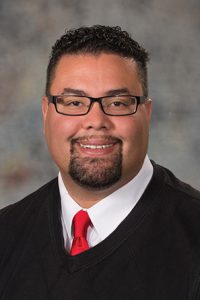Housing assistance priority for extremely blighted areas approved
Affordable housing projects in extremely blighted areas will receive first priority for state assistance under a bill passed by the Legislature May 24.
Introduced by Omaha Sen. Justin Wayne, LB86 requires the state Department of Economic Development to give first priority to projects located in an area that has been declared extremely blighted when selecting projects for Affordable Housing Trust Fund assistance.
The fund is used to increase the supply and improve the quality of the state’s affordable housing stock.
The bill requires the governing body of a city that intends to build workforce housing in an extremely blighted area under the state’s Community Development Law—or intends to declare an area as extremely blighted for purposes of funding decisions under the Affordable Housing Trust Fund—first to adopt a resolution that the area is extremely blighted after a public hearing.
State law defines an extremely blighted area as a census tract with an average unemployment rate that is at least 200 percent of the average state unemployment rate and an average poverty rate of more than 20 percent according to the most recent federal decennial census.
The bill includes provisions of Wayne’s LB88 that will provide a $5,000 nonrefundable income tax credit to any individual who purchases a residence located in an extremely blighted area if it is his or her primary residence and was not purchased from a family member.
The credit is subject to recapture by the state Department of Revenue if the individual claiming the credit sells the residence or stops using it as his or her primary residence within five years.
LB86 also includes provisions of LB694 and LB737, both introduced by Sen. Tony Vargas of Omaha.
Under those provisions, only for-profit entities are required to provide matching funds to receive assistance from the Affordable Housing Trust Fund. Political subdivisions, local housing authorities and nonprofit organizations are not required to provide matching funds.
The bill also requires the state Department of Economic Development to include more information in its annual status report on the Affordable Housing Trust Fund. The report is required to include the total amount of funds for which applications were received, the year-end fund balance and an explanation of why any remaining funds have not been committed.
LB86 passed on a vote of 47-0.

